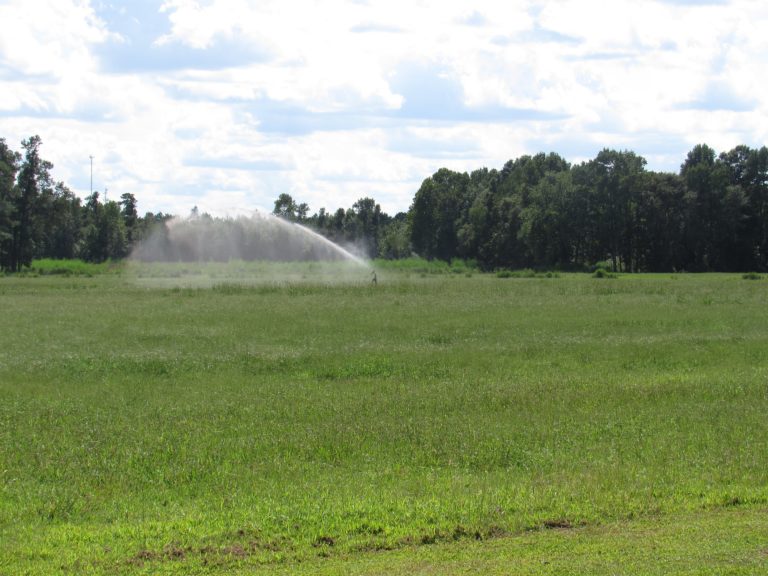North Carolina Hog CAFOs Dumping Waste in Advance of Tropical Storm Hermine
By: Christian Breen

Cape Fear Riverkeeper and Waterkeeper Alliance Document Violations at roughly 30 CAFOs
WILMINGTON, NORTH CAROLINA – September 2, 2016 – On Thursday, more than four hours after the National Weather Service issued its widely publicized Flash Flood Watch for Tropical Storm Hermine, roughly 30 Duplin County, North Carolina hog CAFOs were observed spraying untreated animal waste from their lagoons, with several spraying onto saturated lands, into wood lines and onto public roadways. The Flood Watch, issued at 10:44 a.m. on Thursday, September 1, predicted 5 to 8 inches of rain, with local amounts up to 10 inches possible, and flooding near creeks and streams for many areas, including Duplin County.
North Carolina hog CAFO permits require all spraying of hog waste to cease four hours after issuance of a National Weather Service Flood Watch associated with a tropical system for a county. This is to ensure that the hog waste will not contaminate waterways and endanger public health. CAFO manure can contain antibiotic-resistant bacteria and other pathogenic microorganisms that can cause severe human illness. Farmers with a goal of fertilizing crops, especially those that have to pay for commercial fertilizer, also avoid applying waste before rain events because it will immediately run off into surrounding waterways and will not benefit their crops.
Waterkeeper Alliance and Cape Fear River Watch documented the waste spraying at roughly 30 hog CAFOs in Duplin County from the ground and from the air on Thursday, and notified the North Carolina Department of Environmental Quality later that day. The number of hog CAFOs spraying waste on Thursday far exceeded the numbers observed on a typical day. Because North Carolina hog CAFOs continue to use the lagoon and sprayfield system that the Legislature first banned for new and expanding operations in 1997, and Smithfield Foods, Inc. committed to replace at existing operations in 2000, many facilities have overfull lagoons and saturated waste application fields prior to large rain events. Waste spraying in advance of a tropical storm, though dangerous and illegal, may be seen by some facilities as an under-the-radar way to get rid of excessive hog waste.
Waterkeeper Alliance and Cape Fear River Watch will continue to monitor the situation, and will provide additional information as the storm progresses.